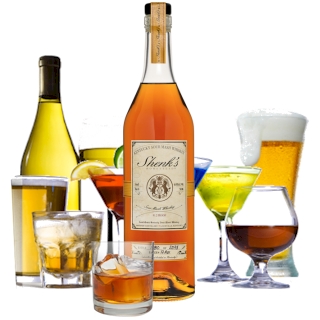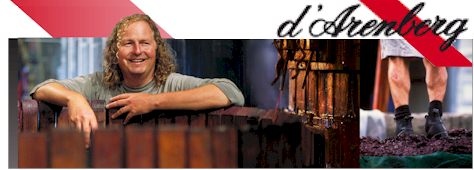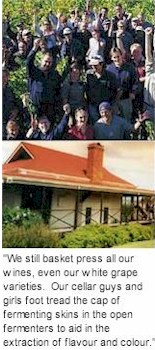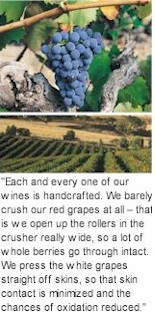


In 1912 Joseph Osborn, a teetotaller and director of Thomas Hardy and Sons, purchased the well established Milton Vineyards of 25 hectares in the hills just north of the townships of Gloucester and Bellevue, now known as McLaren Vale. Joseph’s son Francis Ernest (‘Frank’) Osborn left medical school, choosing to forsake the scalpel for pruning shears. He soon increased the size of the vineyard to 78 hectares. Fruit was sold to local wineries until the construction of his own cellars was completed in 1928. Dry red table and fortified wines were produced in ever increasing quantities to supply the expanding markets of Europe.

In 1943 Frank’s son Francis d’Arenberg Osborn, universally known as d’Arry, returned from school, age 16, to help his ill father run the business, eventually assuming full management in 1957. In 1959 d’Arry decided to launch his own label d’Arenberg, named in honour of his mother, Frances Helena d’Arenberg.
It was a small and humble start but the wines gained immediate cult status amongst imbibers and judges. The 1968 Cabernet Sauvignon won the Jimmy Watson Trophy at the 1969 Royal Melbourne Wine Show and the 1967 Red Burgundy (Grenache based) was awarded 7 trophies and 29 gold medals in Australian capital city wine shows. By the 1970’s d’Arenberg wines had become very fashionable, having gained a significant national and international profile in less than 20 years.
Enter the fourth generation, d’Arry’s son Chester d’Arenberg Osborn. From a very early age Chester was focused on continuing his family’s winemaking tradition. While growing up on the family property he helped his father d’Arry in both the vineyards and the cellar floor during school semester breaks and Christmas holidays. After graduating from Roseworthy College and touring other Australian and European wine regions, Chester took over the reins as Chief Winemaker in 1984. He immediately set about returning the family’s vineyards to their traditional grape growing practices of minimal inputs and no fertilisation, cultivation and irrigation wherever possible, therefore achieving natural soil flavours with very low yields.

dArenberg is one of the last remaining wineries to basket press their wines. This gentle method of squeezing juice from the grape skins protects the delicate white grapes and is gentle in the process of extracting the flavour, colour and tannins from the reds. The winemaking processes of the past have been maintained, capturing the unique small-batch character of the wines and the true flavour of the McLaren Vale region. Parcels of fruit are kept separate from the time of harvesting, through fermentation, pressing and maturation. When it comes to the blending stage, the winemakers have a wealth of different components with which to create a given wine.
d’Arenberg’s art of being different extends to a range of fortified and dessert wines which hold legendary status worldwide, as well as operating d’Arry’s Verandah Restaurant, one of South Australia’s most loved and highly awarded restaurant, set on a picturesque hilltop adjoining the cellar door tasting room. The reds are still traditionally fermented with the grape skins (caps) submerged in open wax-lined concrete fermenters utilising the age-old technique of foot-treading. Chief Winemaker and Viticulturist Chester is also a bit of a dab hand at steel design - he designed and had built on site new steel fermenters to the exact specifications of the original concrete ones.
In June 2004 Chester’s father, d’Arry was awarded a Medal of the Order of Australia in the Queen’s Birthday Honours for his contributions to the wine industry and to the McLaren Vale region. After more than 65 consecutive vintages d’Arry is very proud of his achievements in creating an internationally recognised wine brand commonly known as the ‘Red Stripe’ due to the distinctive diagonal red stripe that adorns the label.
